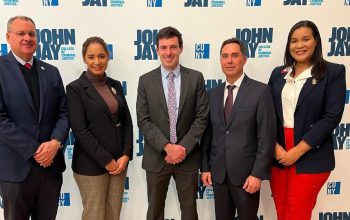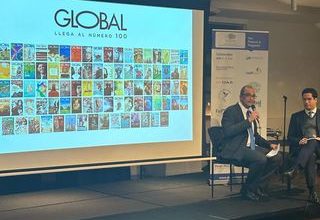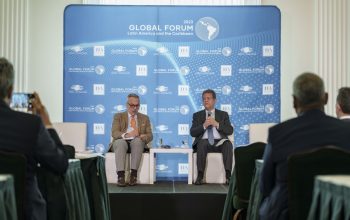news
Palestinian Representative to the United Nations Confirms Attendance to GFDD’s and FUNGLODE’s Eighth Global Roundtable
January 18, 2012
On January 23, GFDD and FUNGLODE will be hosting the Ambassador and Permanent Observer of Palestine to the United Nations, H.E. Mr. Riyad H. Mansour, at its eighth Global Roundtable.
The Global Roundtable series is part of GFDD’s goal to organize regular meetings with UN Ambassadors and other prominent figures in the international community in an effort to spread news, knowledge and understanding of other countries, global issues and work of
different United Nations bodies to its audience in the Dominican Republic, the US and around the world. The regular meetings of GFDD’s Global Roundtable also form part of its mission to support and advance the United Nations agenda of work.
Since 2004, the Foundations have had consultative status with the Economic and Social Council, the Conference on Trade and Development, the Department of Public Information, The Global Compact Office, the Office on Drugs and
Crime and the World Summit on Information Society.

Ambassador Mansour has served as permanent observer of Palestine to the U.N. since 2005. Prior to his diplomatic service, he taught at several prestigious American universities, lectured at institutions of higher education, and participated in numerous international conferences,
seminars, and panel debates on behalf of Palestine. His scholarship has focused most notably on the Palestinian community in the United States.
His Excellency will be discussing Palestine Authority’s plan for its economy, its strengh in the education system, and its drive in the filed of ICTs . He will also touch on how the Palestinians are continuing to employ creative ideas to gain statehood recognition and membership in to the United Nations world
body.
About Palestine
The Palestinian people number from 9 to 11 million and presently live divided among the borders of historic Palestine and neighboring Arab countries. Despite the lack of concrete political borders, the Palestinian people exhibit a strong national identity and great ambitions for the future.
Under the leadership of the Palestinian Liberation Organization – an umbrella group
uniting various political factions and groups that emerged after the Six-Day War of 1967 – the nation has striven to create a Palestinian state on the West Bank of the River Jordan and Gaza on the Mediterranean coast.
Especially of late, the country’s plight for statehood has garnered international attention and support. This trend seems to only be increasing, as a number of international organizations have embraced Palestine into their community of
nations, prominent among them being UNESCO.
Israel’s founding in 1948 saw the former British mandate of Palestine partitioned between Israel, Jordan, and Egypt. This resulted in a refugee crisis, with some families living in neighboring Arab states for generations. The situation has been exacerbated by continued Israeli settlements, blockades, and intermittent violence, all of which have served to galvanize both sides of the conflict.
Despite
these hardships and economic fragmentation, Palestinians continue to persevere through the great value they place on educational achievement. Even by global standards, schooling enrollment rates are very high. According to a World Bank survey, 60% of Palestinian youth view an education has their first priority, and the national literacy rate is 99.8%. These achievements promise great prospects for the future and for Palestinian self-determination.





